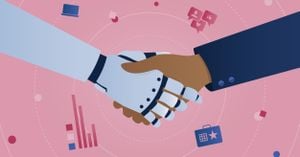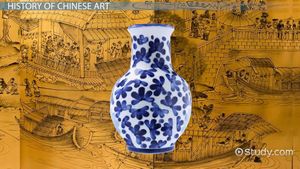The world is buzzing about artificial intelligence (AI) and its rapid advancements, with discussions shifting from theoretical possibilities to real-world applications. Yet, for every innovative breakthrough, concern grows about what this means for humanity, society, and professional practices. The question looms large: Are we ready for the inevitable march of AI, or are we racing toward unforeseen consequences?
Recently, discussions have intensified around the artwork and text generated by AI programs, especially tools like ChatGPT and OpenAI's various applications. While some praise their capabilities, others raise alarms about how these tools can bias knowledge production, devalue human creativity, and even influence the direction of content creation across industries. Critical voices argue there’s more at stake than mere convenience; the essence of human creativity and thought is on the line.
Harry Grenier, writing for The Maine Campus, expresses unease about students using AI to complete assignments. Grenier argues, "By letting the machine come up with ideas for me, write for me and edit my work for me, I’m not producing anything - the machine is." This sentiment captures the fear shared by many: the gradual handover of intellectual reliance to machines could dilute the unique human voice and identity.
Similarly, Ed Fox, Chief Technology Officer at MetTel, explores the impact of AI not just on creative spaces but within IT networking, asserting its potential to revolutionize the way organizations communicate and operate. According to him, AI networking is expected to save operational management costs by up to 25%. Efficiencies gained, he claims, might allow organizations to focus more on innovative projects rather than mundane tasks, likening AI’s role to plumbing within the IT sector.
The merging of these perspectives brings about fundamental questions: What happens when we blur the lines between human ingenuity and machine efficiency? What are the societal impacts if people no longer engage deeply with their ideas or learn the process of creation? Fox argues for the major benefits AI can provide—not by replacing the human touch but rather enhancing it through automation and smarter operations. Yet, skeptics point to the risks of deep-seated dependency on technology.
Further on, Fox outlines both the benefits and the pitfalls of this AI networking. On one hand, he anticipates improvements like faster incident resolutions and enhanced user satisfaction. On the flip side, he admits to persistent challenges, particularly around data quality and the need for privacy and data security as AI systems make decisions based on access to sensitive information. This ever-pressing tension highlights how even as we advance our networks, vigilance is required to guard against exploitation and failures.
Meanwhile, figures such as Keir Starmer have weighed in on regulating how media and information are produced using AI. Starmer argues for the necessity of media firms retaining control over their content to prevent potential misuse by AI technologies. His proposals signal a recognition of the delicate balance between employing AI for efficiency and retaining ownership of the narratives crafted by human journalists.
It’s as if we’re at the crossroads of opportunity and caution. The rise of AI undoubtedly brings advantages: efficiency, personalization, the capacity to handle large data sets, and more. Yet, the soul of artistry, creativity, and authentic human insight is at risk of being overshadowed.
This complex relationship between technology and our humanity is envisaged by many as akin to narratives found within science fiction. Films like The Terminator highlighted fears about machines learning to think and determining their own fate, as they challenge every notion of what human creativity truly means. Grenier posits, “Are we asking machines to think for us? Are we too lazy to engage critically with our world?”
Conversely, the future painted by Fox shows AI as the worker bee to human nests: tirelessly achieving tasks and allowing human intellect to shine elsewhere. This duality leaves many caught between admiration and apprehension, standing as witnesses to the transformative power of the innovation.
Yet, it's important to note, the integration of AI must be strategic. Fox thoughtfully elucidates interoperability issues: ensuring various systems work cohesively without compromising performance or security. This area poses questions about how organizations will manage multilayered systems and what this complexity means for accountability.
The rise of AI, particularly generative models, has prompted some to call for more comprehensive regulations and frameworks. The need for standards—perhaps to govern how AI interacts with input data and safeguards user content—might become increasingly urgent as the technology continues to evolve. Starmer’s call serves as part of this wider dialogue about safeguarding the essence of creative industries in the wave of technological transformation.
Critics assert we should be cautious, as the culture shifts toward one potentially dominated by technology, leading society to entirely depend on AI at the expense of our humanity. If left unchecked, AI might not only threaten individual jobs but also challenge the authenticity of information we consume daily. If humans yield to convenience, what unique insights and original thoughts will emerge from the masses?
Educational institutions are grappling with how to incorporate AI tools responsibly. How do we prepare students for future careers when tools like ChatGPT can produce text at the click of a button? At what point does the ease of these tools become detrimental to learning and personal growth? Grenier’s insistence on the importance of maintaining one’s voice echoes across classrooms, underscoring the need to engage with AI intentionally rather than out of sheer convenience.
This spels not just caution but also opportunity: educational programs can pivot toward teaching students how to effectively integrate AI without losing personal expression or creativity. Much attention could be devoted to exploring ways people can partner with machines, allowing AI to assist rather than replace the core of what makes us human.
Indeed, as we witness the seismic shifts AI creates across various sectors, we’re left with important lessons on cultural evolution. Balancing technology's potential with the preservation of our nuanced, diverse human experiences becomes ever more pertinent. It’s not merely about what AI can do; it’s about what we choose to do with it—and how we can leverage this partnership to spark genuine creativity instead of passivity.
Change is here, and the rapid pace of AI innovation requires society to adapt accordingly. Continuous discussions about ethical use, potential regulations, and education will be central to ensuring our humanity isn't consumed by the technology we build. A collaborative future awaits, one where creativity and ingenuity might thrive alongside AI advancements, so long as we remain vigilant stewards of our unique human perspectives.



